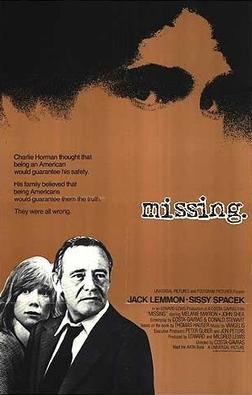
Missing is a 1982 American biographical thriller drama film directed by Costa-Gavras from a screenplay written by Gavras and Donald E. Stewart, adapted from the book The Execution of Charles Horman: An American Sacrifice (1978) by Thomas Hauser, based on the disappearance of American journalist Charles Horman, in the aftermath of the United States-backed Chilean coup of 1973, which deposed the democratically elected socialist President Salvador Allende.

The Noto Peninsula is a peninsula that projects north into the Sea of Japan from the coast of Ishikawa Prefecture in central Honshū, the main island of Japan. Before the Meiji era, the peninsula belonged to Noto Province. The main industries of the peninsula are agriculture, fisheries, and tourism.
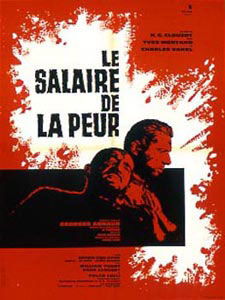
The Wages of Fear is a 1953 thriller film directed and co-written by Henri-Georges Clouzot, and starring Yves Montand, Charles Vanel, Peter van Eyck and Véra Clouzot. The film centers on a group of four down-on-their-luck European men who are hired by an American oil company to drive two trucks over mountain dirt roads, loaded with nitroglycerine needed to extinguish an oil well fire. It is adapted from a 1950 French novel by Georges Arnaud.
Axel Gabriel Erik Mørch better known as Gabriel Axel was a Danish film director, actor, writer and producer, best known for Babette's Feast (1987), which he wrote and directed.
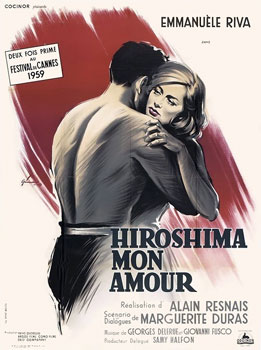
Hiroshima mon amour, is a 1959 romantic drama film directed by French director Alain Resnais and written by French author Marguerite Duras.

Cyrano de Bergerac is a 1990 French period comedy-drama film directed by Jean-Paul Rappeneau and based on the 1897 play of the same name by Edmond Rostand, adapted by Jean-Claude Carrière and Rappeneau. It stars Gérard Depardieu, Anne Brochet and Vincent Perez. The film was a co-production between companies in France and Hungary.
Misa Shimizu is a Japanese actress. She made her screen debut by winning the heroine audition for 1987 film Shōnan Bōsōzoku. She starred in NHK's morning drama series Seishun Kazoku in 1989. She portrayed Keiko, the female protagonist, in Palme d'Or winning The Eel directed by Shohei Imamura. She also makes regular appearances in Masayuki Suo's films. She won the award for best actress at the 17th Hochi Film Award for Okoge, Sumo Do, Sumo Don't, Future Memories: Last Christmas.

Yol is a 1982 Turkish film directed by Şerif Gören and Yılmaz Güney. The screenplay was written by Güney, and directed by his assistant Gören, as Güney was in prison at the time. Later, after Güney escaped from Imrali prison, he took the negatives of the film to Switzerland and later edited it in Paris.

Black Rain is a 1989 Japanese drama film by director Shōhei Imamura, based on the novel of the same name by Masuji Ibuse. The story centers on the aftermath of the atomic bombing of Hiroshima and its effect on a surviving family.

Unholy Desirea.k.a.Intentions of Murder is a 1964 Japanese drama film by director Shōhei Imamura.

Tak Sakaguchi is a Japanese actor, director, fight choreographer, stuntman and martial artist. He is best known for his role in Ryuhei Kitamura's cult film, Versus. Since his debut, Sakaguchi has worked with Kitamura several times, often appearing alongside fellow Kitamura staple Hideo Sakaki. He has also worked with frequent Kitamura collaborators Yudai Yamaguchi and Yuji Shimomura. Sakaguchi is a talented martial artist, and most often appears in films featuring copious fight scenes, usually performing all of his own stunts. He is purportedly skilled in Bajiquan, Shorinji Kempo, Boxing, Kickboxing, and while recently filming Re:Born learned the tactical martial art Zero Range Combat developed by Yoshitaka Inagawa.
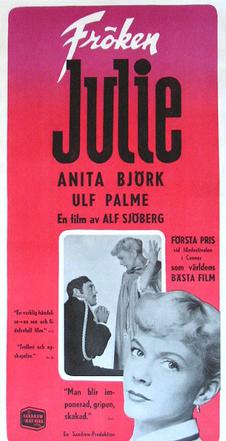
Miss Julie is a 1951 Swedish drama film directed by Alf Sjöberg and starring Anita Björk and Ulf Palme, based on the 1888 play of the same name by August Strindberg. The film deals with class, sex and power as the title character, the daughter of a Count in 19th century Sweden, begins a relationship with one of the estate's servants. The film won the Grand Prix du Festival International du Film at the 1951 Cannes Film Festival.

Sumiko Sakamoto was a Japanese singer and award-winning actress, born in Osaka, whose heartfelt performances made her a favorite of the late film director Shohei Imamura. Imamura cast her in three of his films: The Pornographers, Warm Water Under a Red Bridge, and The Ballad of Narayama, winner of the Palme d'Or at the 1983 Cannes Film Festival. She won the award for Japanese Best Actress from Nihon Academy for her performance in The Ballad of Narayama, as well as a kiss from Orson Welles.
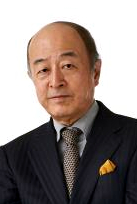
Shin'ichirō Ikebe is a Japanese composer of contemporary classical music.
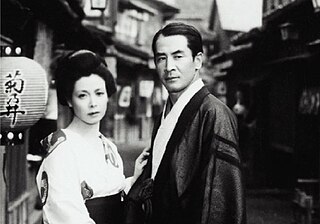
An Inlet of Muddy Water, also titled Muddy Waters, is a 1953 Japanese drama film directed by Tadashi Imai. Based on three short stories by Ichiyō Higuchi, it received numerous national film prizes and is regarded as a major work of Imai by film historians.
Events in the year 1984 in Japan.
Shigeru Tsuyuguchi is a Japanese actor.
The Japanese Movie Critics Awards are presented annually since 1991.
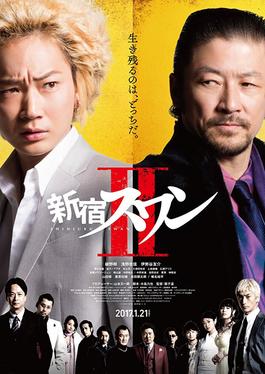
Shinjuku Swan II is a 2017 Japanese comedy film directed by Sion Sono based on the manga Shinjuku Swan by Ken Wakui. It was released in Japan on January 21, 2017. It is the sequel to Shinjuku Swan (2015), also directed by Sion Sono.

Kazuo Kitamura was a Japanese actor. His son is actor Yukiya Kitamura. Kitamura met Shōhei Imamura when he was a student of Waseda University and became a close friend so often worked with Imamura. Kitamura joined Bungakuza theatre company and started his acting career in 1950. In 1953, he made his film debut with An Inlet of Muddy Water directed by Tadashi Imai.














